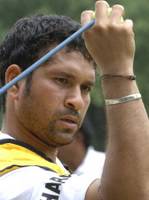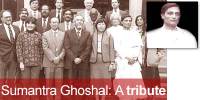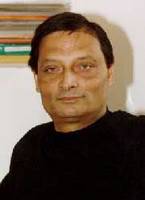Applying to a B-school ( Article from Economic Times)
Over a hundred years old, the
Chicago Graduate School of Business prides itself on grounding students in the fundamentals of business. The school, ranked in the top 10 by every B-schools ranking , was also the first US Ivy League to venture in the Asian market with its Singapore centre, which offers the executive MBA.
Last year, Chicago GSB admitted 1,112 students to its full-time MBA. Candice Zachariahs asked senior associate director of admissions at Chicago, Kurt Ahlm for a few pointers on applying to B-schools .
When should a B-school aspirant begin the application process? How much time should one give oneself and is it beneficial to have the application in by the first set of deadlines?
It is never too early to begin the application process. Most schools make their applications available to the public starting in August, giving applicants a few months to work on their applications prior to their first round of deadlines.
It is hard to quantify how much time an applicant can expect to work on completing an application. Requirements vary from school to school, and most information, particularly answers to essays, is not transferable from one application to the next.
I would recommend an applicant spend some time familiarising themselves with the school before answering any application questions. Schools not only want to find out about you, but also your knowledge and interest in their programme so do not complete an application with generic answers.
Applying early can convey an applicant’s strong desire to attend a given programme. Applicants typically get their applications to their top choice schools first so they can either celebrate an early admission or reassess their options should they not be admitted.
Also, it is important to know that many schools make decisions on a rolling basis and spots within a class can fill by the time a third deadline occurs. Therefore, it is best to begin the process of researching and applying to schools early rather than wait until the last minute.
There is a caveat to this however; never submit an application that is mediocre just to get it in early. A weak application will not be overlooked because it was submitted early. The best rule of thumb for applying to a school is: early is good but prepared is better.
Given the effort that each application package requires, how many schools would you advise a student to apply to?
The optimal number depends on the applicant... the typical and most manageable number lies somewhere in the 4-5 range. Applicants need to do their research before applying to schools, and they should apply to schools that best meet their wants and needs.
Do not apply to schools solely based on reputation, each B-school is different and attracts different students. Select a school that meets all expectations; academic, social and professional.
Could you indicate some of the more effective ways to go about researching B-schools.
Start with the internet. Schools are investing a great deal of money into developing their websites and making them comprehensive informational resources. Much of what you want to know about any given programme you can find online.
Talk to alumni. Chances are many applicants work with a plethora of B-school alums, most of whom are more than ready to share information about their experience.
Attend B-school forums and informational sessions. Most schools participate in forums and/or sponsor school-specific information sessions and receptions in cities all over the world. These events are ideal for talking with staff and alumni and getting specific questions answered about a given programme.
Visit the school. This can be a costly endeavour for many international applicants, but there is truly no greater exercise in research than the campus visit. This allows someone access to the classroom, the students, the faculty etc and gives an applicant a first-hand account of the entire educational experience at a particular school.
Interview if it is encouraged by the programme. Many schools encourage interviews, and this is an excellent opportunity to spend 30-45 minutes with a representative from a school telling them your story and asking tough questions about their programme.
Interviews, whether conducted on campus or with alumni in a given area, are excellent opportunities to delve into the specifics of a programme and find out if a school is the right fit. Applicants should check with each school they are applying to and see what their policies are for interviews.
Could you outline the admission process at Chicago? What are the most important elements?
We evaluate candidates’ applications in the following areas: length and breadth of work experience, academic profile, extracurricular and community service involvement, evidence of leadership potential, communication ability and motivation to attend the GSB.
There is not one particular area that can make or break an application. Rather, we are looking for people who are well-rounded and can demonstrate strengths in many if not all of these areas.
Many Indian applicants tend to be very young, with work experience of a year or two. What other areas can aspirants focus on to exhibit the qualities that an admission panel looks for?
In my opinion the issue of work experience is not so much about length as it is about quality and focus. Many applicants are admitted to B-school programmes with one-two years of experience because they are able to demonstrate a rich overall professional experience and convey a strong argument for why they need an MBA.
Many younger applicants see an MBA as the next logical step and can not clearly articulate how an MBA will impact their future or even more overlook how they will impact an MBA community. Applicants who can demonstrate a rich professional experience and a clear vision for an MBA programme’s impact on their future have the greatest chance of being recognised in the application process.
What are the common mistakes applicants make?
The most common mistake applicants make is they do not create a compelling story about who they are as a person. Applicants tend to focus solely on the professional aspect of their lives and neglect to reveal enough about themselves in other aspects. Successful applicants not only have the credentials but they tell a compelling and well-rounded personal story through their application.
Creating that story amidst the many restrictions of an application is why this process is such an arduous one, and why applicants must take the time to prepare. B-schools are not just looking for successful professionals but dynamic human beings.








